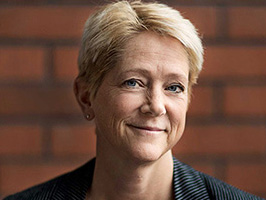Faculty Boards are built for the future

From 1 January next year, the new Faculty Boards will be in place and up and running at each school.
“We hope that a lot of people will take the opportunity to help influence their school’s development, both strategically and on a day-to-day basis,” says Sofia Ritzén, Dean of Faculty. It is both about participating in the boards but also about nominating colleagues and participating in the election.
She is the convener in the working group tasked by the President of KTH to develop and build an organisation for collegiate influence and responsibility.
“Influence and responsibility go hand in hand, and the faculty boards will be very important as a preparatory and decision-making body in a collegiate and decentralised structure,” says Ritzén.
The faculty boards should handle tasks that require scientific or artistic assessment.
Monitoring the quality
Some of the issues the faculty boards will prepare and decide on relating to schools’ strategic focus may include the education on offer at the school, study plans for researcher training, and monitoring the quality of education and research at the school.

“The goals are higher quality and improved efficiency. The basic idea is that the people who know the operation best and are closest to it, are the ones best placed to make decisions relating to it together – thus helping to develop the school and KTH as a whole.”
Work is currently underway to put together a selection committee for each school. During the autumn, the election committees work to collect nominations and present electable persons. The elections will be held December 4-10. At the same time, elections for the Faculty Council are also held.
Different perspectives
“The involvement of researchers and teachers in nominating and participating in the election is very important,” says Ritzén.
On 22 November, proposals for new rules of procedure will be brought up in the University Board, following a round of referrals. Elections for the committees will be held on 4–10 December.
“The faculty boards will represent different perspectives and fields of research,” says Ritzén. She stresses that collegiate influence and responsibility are aspects of academic citizenship and also important in bolstering the role of universities in a democracy context.”
